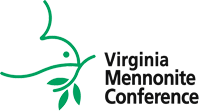
Mission
Virginia Mennonite Conference equips pastors, lay leaders, and congregants for worship and service, and to bring the Good News of Jesus Christ to neighbors near and far.
Racial Justice Resource Guide
A note on this resource guide: this compilation is by no means exhaustive, but rather represents a few resources which have been useful and meaningful to Virginia Mennonite Conference’s Racial Justice Task Force. For many people newly involved with racial justice work, particularly white people, the first step towards reconciliation is extensive listening to and learning from leaders of color who have long advocated for change, many of whom are represented below.
Feel free to contact Caleb ([email protected]) for more suggestions and resources.
Recommended Curricula and Reading Lists:
MCUSA provides a variety of resources for churches and individuals who hope to become more involved in the work of racial justice.
https://www.mennoniteusa.org/resource-portal/resource/anti-racism-basics/
MCUSA’s eight-week study on the biblical message of abolition and jubilee lay out a new vision for policing and justice in our American community.
https://www.mennoniteusa.org/abolition-curriculum-intro/
Be the Bridge, a worldwide organization seeking racial reconciliation, has compiled an excellent list of suggested books, podcasts, and movies relating to racial justice.
https://bethebridge.com/we-recommend/
Anabaptist Historians has created a reading list challenging the false assertion that Anabaptists have always been on the right side of racial justice issues and painting a more racially diverse picture of who Anabaptists are today.
https://anabaptisthistorians.org/2020/06/18/an-anabaptist-anti-racist-reading-list/
Mennonite Central Committee has released a seven-week bible study titled “Embracing Beloved Community” to help churches interested in talking about the sin of racism. It is available for free.
https://mcc.org/embracing-beloved-community/
An American Lent, produced by Coracle and The Repentance Project, is a devotional devoted to understanding and repenting from racism in our American context. You can register to participate in American Lent 2022 and can find the full-text of the devotional below. https://inthecoracle.app.neoncrm.com/np/clients/inthecoracle/event.jsp?event=1075&/
Racism in American Society: The US is one of the most racially diverse countries in the world but continues to suffer from racial disparity due to past and present racist actions. These resources examine how racial division became deeply ingrained in the American story and why race continues to be the decisive factor in numerous socioeconomic indicators.
Stamped from the Beginning: The Definitive History of Racist Ideas in America by Ibram X. Kendi traces the history of racist ideas from their earliest appearance in the New World through to our modern discourse. Kendi has created an accessible crash course in understanding the history of the idea of race in America.
https://www.amazon.com/Stamped-Beginning-Definitive-History-National
The Land is Not Empty: Following Jesus in Dismantling the Doctrine of Discovery by Sarah Augustine uses Augustine’s life story as a chance to demonstrate the current and historical challenges facing Native American communities and offers a fresh theological take on Jesus’s love for indigenous peoples.
https://heraldpress.com/books/the-land-is-not-empty/
Caste: The Origin of our Discontents by Isabell Wilkerson makes the case that the US has always operated with a (usually) unspoken caste system that determines which groups and people have access to land, wealth, and social capital — aka, power.
https://www.amazon.com/Caste-Origins-Discontents-Isabel-Wilkerson/dp/0593230256
The New Jim Crow: Mass Incarceration in the Age of Colorblindness by Michelle Alexander details how the US’s for-profit prison system and the war on drugs have created a new system of social inequality that continues to impact people of color.
https://www.amazon.com/New-Jim-Crow-Incarceration-Colorblindness/
We Were Eight Years in Power: An American Tragedy by Ta-Nehisi Coates is a collection of essays touching on reparations, mass incarceration, and how race continues to dominate the American political landscape.
https://www.amazon.com/We-Were-Eight-Years-Power/dp/0399590560
13th, a film available on Netflix, details how the 13th Amendment to the American constitution abolished slavery for most, but not all, Americans, and how the loophole of slavery-as-punishment created our system of mass incarceration.
https://www.youtube.com/watch?v=K6IXQbXPO3I&ab_channel=moviemaniacsDE
Racism and Christianity: Far from the church being united in opposition to slavery and segregation in America, many white churches supported, both actively and passively, oppressive racist systems. Why and how have white churches not always spoken up for racial justice?
The Color of Compromise: The Truth about the American Church’s Complicity in Racism by Jemar Tisby details the history of concessions made by white Christians leading to the normalization of Christian support for slavery, Jim Crow, and even racial oppression today.
https://www.amazon.com/Color-Compromise-American-Churchs-Complicity-ebook/dp/B07BB6R827
Divided by Faith: Evangelical Religion and the Problem of Race in America by Michael Emerson and Christian Smith examines how sociological structures allow and even encourage the ongoing segregation of congregations and denominations
https://www.amazon.com/Divided-Faith-Evangelical-Religion-Problem/dp/0195147073
Rediscipling the White Church: From Cheap Diversity to True Solidarity by David Swanson challenges white churches to move beyond focuses on shallow diversity and instant progress, instead calling congregations to active participation in the struggle for racial equality.
https://www.amazon.com/Rediscipling-White-Church-Diversity-Solidarity/dp/0830845976
Anabaptists and Racism: Though the Anabaptist movement began among white communities in Europe it has spread to become a global and multi-racial Christian community. How have Mennonites and Anabaptist of color experienced working with white Mennonite and Anabaptist communities? What unique witness does Anabaptism bring to Racial Justice work?
Trouble I’ve Seen: Changing the Way the Church Views Racism by Drew Hart is a work of theology, politics, and memoir that challenges readers to redouble their commitment to racial healing and re-examine their view of Jesus’s ministry.
https://www.amazon.com/Trouble-Ive-Seen-Changing-Church/dp/1513800000
Who Will Be A Witness: Igniting Activism for God’s Justice, Love, and Deliverance by Drew Hart overviews how action towards racial justice within the church often fail and suggests new models of church actions for racial justice.
https://www.amazon.com/Who-Will-Be-Witness-Deliverance
Enter the River: Healing Steps from White Privilege Toward Racial Reconciliation by Jody Miller Shearer focuses on how white Christians can enter into racial reconciliation work which has been going on for decades, if not centuries.
https://www.amazon.com/Enter-River-Healing-Privilege-Reconciliation/dp/0836136608
Black and Mennonite: A Search for Identity by Hubert Brown is a memoir detailing Brown’s struggle to reconcile his Mennonite and Black identities within white-dominated Mennonite spaces.
https://www.amazon.com/Black-Mennonite-Hubert-L-Brown/dp/1579105769
The Movement Makes Us Human: An Interview with Dr. Vincent Harding on Mennonites, Vietnam, and MLK by Joanna Shenk tells the story of an often overlooked leader from the Civil Rights Movement whose prophetic Christian journey saw him connect with, and then depart from, the Mennonite community.
https://www.amazon.com/Movement-Makes-Us-Human/
Been in the Struggle: Pursing an Antiracist Spirituality by Regina Shands Stultzfus and Tobin Miller Shearer, released at the beginning of 2022, recounts stories and shares wisdom from three decades of combatting racism from an Anabaptist perspective.
https://www.amazon.com/Been-Struggle-Pursuing-Antiracist-Spirituality/dp/1513809431
Understanding White Identity: Racism by white communities against communities of color has also weakened and cheapened white communities for generations. Understanding whiteness and white privilege is a crucial step towards becoming a Christian better equipped to combat racial injustice.
The Hidden Wound by Wendell Berry tells of Berry’s childhood in the Jim Crow south and how he has come to understand the history of racism and racial healing within his family.
https://www.amazon.com/Hidden-Wound-Wendell-Berry/dp/1582434867
Dying of Whiteness: How the Politics of Racial Resentment Is Killing America’s Heartland by Jonathan Metzl lays out how racist culture-war politics has led to terrible social outcomes for white communities in the US.
https://www.amazon.com/Dying-Whiteness-Politics-Resentment-Heartland/dp/1541644972/
White Privilege: Unpacking the Invisible Knapsack by Peggy McIntosh is a short article laying out several dozen instances where McIntosh’s white privilege provides her with a sense of belonging and power denied to people of color.
https://psychology.umbc.edu/files/2016/10/White-Privilege_McIntosh-1989.pdf
The Sum of Us: What Racism Costs Everyone and How We Can Prosper Together by Heather McGhee uses an economic lense to examine how racism has diminished the health and wellbeing of communities of all races throughout American history.
https://www.amazon.com/Sum-Us-Everyone-Prosper-Together/dp/0525509569
White Like Me: Reflections on Race from a Privileged Son by Tim Wise is a memoir laying out how, time and time again, white privilege sheltered and helped Wise as he struggled through a tumultuous upbringing, allowing him to succeed where many people of color would have been left behind.
https://www.amazon.com/White-Like-Me-Reflections-Privileged/dp/1593764251
White Fragility: Why It’s So Hard for White People to Talk About Racism by Robin DiAngelo shares stories and insights from DiAngelo’s experience of talking about racism in white communities.
https://www.amazon.com/White-Fragility-People-About-Racism/dp/0807047414
What Now: Racism and racial disparity remain huge problems in our society, and, while learning is important, action must come next. What are some ways scholars and activists believe we can make our society more racially equitable and closer to God’s shalom?
Reparations: A Christian Call for Repentance and Repair by Duke Kwan and Gregory Thompson makes the case that churches should lead the charge for financial reparations to the descendants of people enslaved in the US.
https://www.amazon.com/Reparations-Christian-Call-Repentance-Repair/dp/1587434504
Be the Bridge: Pursuing God’s Heart for Racial Reconciliation by Latasha Morrison tells the story of her organization Be the Bridge, which inspires and equips churches to seek racial reconciliation within their congregations and beyond.
https://www.amazon.com/Be-Bridge-Pursuing-Racial-Reconciliation/dp/0525652884/
How to Be an Antiracist by Ibram X. Kendi is a seminal work shifting the frame on discussions of racial justice, reminding readers it is not enough to be passively opposed to racism, instead asking and equipping readers to be anti-racist, actively pursuing racial justice in every facet of their lives.
https://www.amazon.com/How-Be-Antiracist-Ibram-Kendi/dp/0525509283/
Reawakened: Activate Your Congregation to Spark Lasting Change by Glen Guyton is a guide to helping congregations find new purpose, meaning, and success in working for social change. Contains a helpful resources section in addition to its advice for organizational leaders.
https://heraldpress.com/books/reawakened
Dear White Peacemakers: Dismantling Racism with Grit and Grace by Osheta Moore is a wonderful guide for white allies hoping to become more involved in racial justice issues. Newly published in 2021, Dear White Peacemakers brings a focused Christian lense to current racial justice efforts.
https://heraldpress.com/books/dear-white-peacemakers
